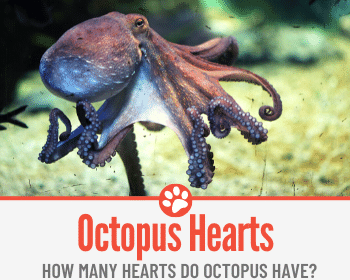
More Hearts, More Love?Įven though there is no such scientific proof, we would love to think that since the octopus is such a lovely creature, it is only logical that having three hearts would allow it to love with more passion and less limits.Octopuses have an excellent sense of touch, according to the World Animal Foundation. According to experts, the systemic heart can miss a beat or two when the octopus gets startled. If you happen to have a pet octopus, better try not to frighten it too often by tapping on the aquarium’s glass. As soon as the octopus uses its arm-legs again, the systemic heart gets back to action. Luckily the octopus does not need to be rushed to the ER. When it swims, the systemic heart shuts down and as a result the octopus becomes tired very quickly. Walking on two of its arms is much easier for an octopus. More simply put: No hearts, no speed, no octopus I Almost Had a Heart AttackĪn octopus would make the worse marathon swimmer ever! At the same time the systemic heart keeps the blood circulation flowing for the organs. But the auxiliary branchial hearts receive the deoxygenated blood from the body and pump it through the two gills and back to the systemic heart.

The octopus would be, therefore, a much easier pray for its enemies, and might not have survived to this day. With less oxygen transferred through the blood, the speed of the octopus would decrease significantly as its blood pressure wouldn’t be high enough to motivate the muscles. The copper-rich blood does not transfer the oxygen as effectively as iron-rich blood would. Octopuses need to increase their blood pressure in order to transfer oxygen to every single of their numerous functional muscles.īut the blood cells of the octopus are rich in copper haemocyanin instead of iron haemoglobin. Three, Two, One…Go!Īll cephalopods have a heart above each gill (called the branchial hearts) and one central heart (the systemic one) which pumps the blood around the body.


Let’s try to refresh our knowledge about biology and understand why the octopus needed to evolve two additional hearts. As if they wish to spread more love to the universe, octopuses are equipped with not one, not two, but three individual hearts!Įach of these three hearts perform a unique function, which means that all three of them are equally necessary for the octopus.


 0 kommentar(er)
0 kommentar(er)
